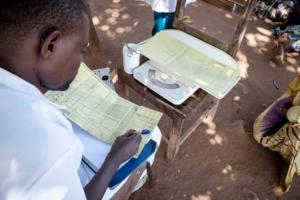The UN supports improving data on malaria and HIV
The National Malaria and HIV Indicator Survey 2014 (IMASIDA) kicked off in the beginning of June. IMASIDA is a large household survey covering 7800 households throughout Mozambique. A team of 175 surveyors; 50 health technicians; 35 data clerks; and 25 data controllers have been trained and will collect data in the next two months.
IMASIDA will not just provide data about HIV and malaria, but also about maternal and child health, and vaccination coverage.
The UN (WHO, UNICEF, UNFPA) and other partners have provided technical and financial support to the Ministry of Health aligning indicators to be comparable with other data sources. This includes the Demographic Health Survey, which will make it possible to measure progress made on key indicators since 2011. The results of IMASIDA will be important to target and prioritize health interventions for those who most need them. Reliable data is especially important for the current transition from Millennium Development Goals to the new Sustainable Development Goals.
A critical step for the success of this survey is community engagement and social mobilization to ensure a high level of participation. A mass media campaign and community mobilization efforts are taking place to inform participants about the initiative.
IMASIDA is the first national household survey since the Demographic Health Survey (Inquerito Demografico de Saúde) in 2011. It shows the commitment of the Ministry of Health and the Government of Mozambique to collect accurate and updated data about the health status of the population, to monitor performance in the health sector and to inform policy making.



